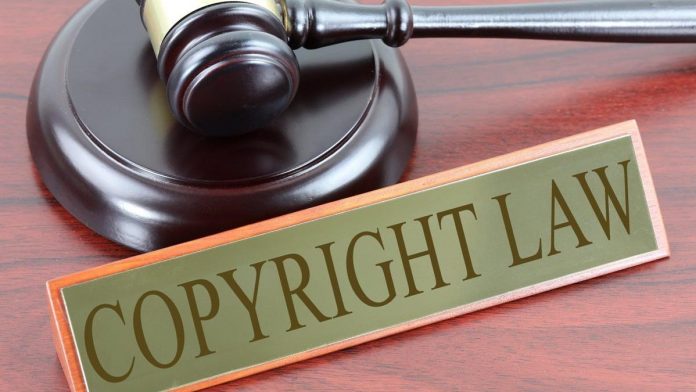This article is written by Henlynn D’Souza. This article has been edited by Ojuswi (Associate, Lawsikho).
This article has been published by Sneha Mahawar.
Table of Contents
Introduction
With the growing popularity of OTT platforms, films of diverse genres, languages, and even decades are now available at the press of a button on a single platform. With such a large pool of content available on these streaming sites, there is a fair possibility of finding two or more films with the same title. While much is discussed about the protection of the original literary, musical or sound works of a film, such as a storyline, screenplay, and songs, the protection of the title, which serves as its identity, is rarely debated. A film’s title is arguably one of its most defining features, and in certain cases, considerable effort and imagination go into making it as creative as possible to draw the attention of the audience. A film’s title serves as the bridge between the film and its viewers, and a creative title could attract the desired audience to theaters much to how a memorable book title may attract more attention than a dull one. However, granting such short works copyright protection under the Copyright Act may be a little tricky. Though no minimum word limit is prescribed under the Copyright Act for a work to be considered copyrighted, the name of a film would generally not be more than a few words making it very difficult to assess the originality of the work. Through this article, we will thus examine the protection given to film titles under the Indian Copyright Act and other laws with reference to various judgments while attempting to assess the role that Film Associations play in registering and protecting film titles.
Protection of film titles under the Copyright Act, 1957
From Don to Dostana, a number of contemporary films have shared titles with beloved classics. There have also been a handful of instances where the same actors have acted in two films having the same title. When two films share the same title and in certain cases, the same actor, the audience may draw comparisons between them even though the films have nothing else in common. A same or similar film title, sometimes referred to as a ‘Mockbuster’ is often used by the creators of a new low-budget film to capitalize on the popularity of a former hit. A producer would naturally want to protect his film title to avoid a similar scenario. The question now is, is such protection even provided under any law applicable in India? Since the fundamental works of a film are protected under The Copyright Act of 1957, we will access the protection given to film titles under the provisions of the Act.
Relevant Legal Provisions of the Copyright Act: Section 13 of the Act specifies which works are protected under the Indian Copyright Law, according to S. 13 (1) copyright subsists in original literary, dramatic, musical, and artistic works, cinematograph films, and sound recordings. Section 14 of the Act defines the term copyright, it states that copyright is the exclusive right to do or authorize someone to do any of the acts related to the aforementioned original works as specified therein.
Since most titles are common words or phrases used in everyday life and cannot be deemed an ‘original literary work’ per se, a straightforward reading of the Act suggests that a movie’s title would not be protected, because it would be difficult to determine whether a title was original. The copyrightability of film titles was examined in detail by the Supreme Court in the judgment of Krishika Lulla and Ors. vs. Shyam Vithalrao Devkatta and Ors, the two-judge bench stated, “The mere use of common words, such as those used here, cannot qualify for being described as ‘literary’… The title in question cannot, therefore, be considered to be a ‘literary work’ and, hence, no copyright can be said to subsist in it, vide Section 13; nor can a criminal complaint for infringement be said to be tenable on such basis.” This landmark decision has been used as a reference in practically every claim for copyright infringement of a film title.
It should also be noted, under Section 44 of the Act, names or titles of works protected by copyright as well as other information pertaining to the authors, publishers and owners of copyright should be maintained in a register that is kept in the approved format and is referred to as a “Register of Copyrights”. One might assume that this would imply the title’s protection under the copyright act, but section 44 only addresses the registration of works protected by copyright; it makes no provision for the protection of the title itself. This is because the title is not automatically protected simply because it is listed in the register of copyrights. And as decided in Sanjay Soya Private Limited Vs. Narayani Trading Company the registration of copyright itself is not mandatory.
Thus, it is safe to say, in a film title claim, the provisions of the Copyright Act 1957, more particularly, Sections of infringement Section 51 (When copyright infringed), Section 55 (Civil remedies for infringement of copyright), and Section 58 (Rights of the owner against persons possessing or dealing with infringing copies) would not get attracted in case of use of an existing film title since the “work” mentioned under Sections 13 and 14 of the Copyright Act 1957 means the underlying work that forms a part of a film and the title of a film is excluded from its meaning.
The decision of various courts regarding alleged copyright infringement of film titles
Citing the landmark judgment of Krishika Lulla, courts have time and again dismissed the claims of copyright infringement of a film title at the outset. In Gen X Entertainment Ltd. V. Purple Haze Motion Pictures Pvt. Ltd. and Ors, the plaintiff sought an injunction for the film “EMOTIONAL ATYACHAAR” as it was almost identical with and/or being deceptively similar to the plaintiff’s distinctive and well-known registered title, name and trademark “EMOTIONAL ATYACHAAR”, here too the court emphasized that “Title alone of a literary work cannot be protected by copyright law. Copying of the title alone and not the plot, characterization, dialogue, song, etc. is not the subject of copyright law.”
In another similar case of Akashaditya Harishchandra Lama Vs. Ashutosh Gowarikar and Ors., the plaintiff brought a suit seeking copyright infringement as well as a grant of an interim injunction against the release of the defendant’s film titled “Mohenjo Daro”, while dismissing the title claim from the very start the Bombay High Court referred to various precedents while stating that, “It is settled law, and has been for a very long time, that there is no copyright in a title.”
Likewise, judge Colabawala noted in the 2020 ruling of Zee Entertainment Enterprises Limited vs. Ameya Vinod Khopkar Entertainment and Ors. for the copyright claim for the film “De Dhakka”, “…it is quite clear that a title of a work cannot be considered to be the subject-matter of copyright law because a title by itself is in the nature of a name of a work and is not complete by itself, without the work.”
Therefore, it is abundantly evident from a quick review of the aforementioned court rulings in cases involving similar allegations of title infringement that a copyright cannot be asserted over a film’s title. The various reasons stated for the same can be summarised as follows:
- A film title is merely a synopsis of the work and is incomplete without the work itself.
- Common terms cannot be considered ‘literary’ and only adopting the name of the work but not any other work in the film cannot be considered a copyright violation.
- A title does not entail literary composition and is therefore insufficient to sustain a claim to protection under Section 13 of the Copyright Act.
However, in the case of Zee Entertainment Enterprises Limited Vs. Ameya Vinod Khopkar Entertainment and Ors the court discussed the protection of film titles in conjunction with “sequel rights”.
What are sequel rights
The term “sequel rights” refers to the exclusive right to produce a particular film’s sequel, which may incorporate a sizable portion of the original film’s plot into its own, often with the same actors. A producer may assign such sequel rights through an assignment agreement.
But how does the sequel right affect film titles
Though not protected under copyright a passing-off action can be claimed in case a film is broadcasted to the public as a sequel of a particular film without proper assignment of such sequel rights. Similar to the Zee Case, in Narendra Hirawat & Co. Vs. M/s. Alumbra Entertainment & Media Pvt. Ltd. & Ors. the Bombay high court distinguished between the right to remake a film and the right to create its sequel. The court ruled that a party cannot lead the public to believe that a film is a sequel to another by adding a number or other similar suffix after the title without a clear indication of such sequence rights in the Assignment agreement. The court noted that the defendant in the aforementioned case was granted the sequel rights, allowing them to produce and subsequently release the film Sarkar-3, even though the plaintiff had been assigned the rights to the film “Sarkar,” and thus no case of infringement can be made against the defendant.
Protection for titles based on film characters
What do Gajni, Krishh, Munna Bhai MBBS, and Sultan have in common? The name of the main character in each of the four films—Gajni, Krishh, Munna Bhai MBBS, and Sultan—served as the basis for their titles. Considering this situation, it’s reasonable to ask whether a title based on a key character in a movie would qualify for protection under the Copyright Act since these fictional characters are protected. To respond to this question we must refer to the ruling in Arbaaz Khan v. North Star Entertainment Pvt. Ltd. According to the court, “Chulbul Pandey” may be protected under the act if the film character “Chulbul Pandey” is unique and the portrayal of that character as well as the ‘writing up’ of that character in an underlying literary work is capable of protection”.
However in Warner Bros Entertainment Inc. & Anr. v. Harinder Kohli & Ors. when the registered trademark owners brought a suit of infringement, seeking a permanent injunction, against the defendants for a film released by them by the title of “Hari Puttar” who had registered the title with the Indian Motion Pictures Producers Association (IMPPA). According to the court, the plaintiff’s lawsuit was dismissed because their films targeted a specific set of audiences that were easily able to distinguish the Harry Potter films from Hari Puttar. The films had two diverse genres and no person would draw parallels between the two. Therefore, even though the title may be based on a well-known character, the test in such a claim would be the potential to cause confusion, and because “Hari Puttar” could not possibly create confusion in the minds of the audience, it does not constitute a violation of the plaintiff’s copyright. Additionally, the court noted the legal limitations connected with registering film names with organisations like the Film and Television Producers Guild of India Ltd. and the Indian Motion Pictures Producers Association (IMPPA), we shall therefore look at the implications of registration of film titles with such associations.
Registration of film titles with associations or GUILDS
As per the IMPPA report of 2021-2022, the Title Registration Committee of FMC has registered 16023 titles belonging to the members of IMPPA. However, as seen earlier, such registration may lack any legal impact. In the case of ‘Hari Puttar’, the court held that protection to titles registered to a particular association may only apply to its members and such registration won’t be binding to a third party since the agreement is only between the association and its members. In another case, in the case of Fish Eye Network Pvt. Ltd. vs. Association of Motion Pictures & T.V. Programme Producers and others the court observed that the plaintiff had relied on a custom or trade practice under which a title is registered with one of the associations of which the registrant is a member and before such registration of the title the association verifies with the other associations as to whether the same or deceptively similar title has been registered with another association, however without any acquired goodwill, a claim for the protection of such title cannot be made and allowed the defendant to use the title “Thank You”
Further while dismissing the plaintiff’s request for an injunction on the grounds that he had registered the name “Raja Rani” with the defendant Film and Television Producers Guild of South India where the defendant is a member the court stated “the registration of the applicant/plaintiff with the second defendant would not give a cause of action for him to claim as a matter of right the same title in respect of the film produced by the defendant Nos.1, 3 and 4, who claim to be members of another council… Rules of a particular council or a body can only bind those members and not members of another body”.
Numerous associations representing various stakeholders in a film are established in India. The non-exhaustive list of the same includes Film Makers Combine (FMC), The Indian Motion Picture Producers’ Association (IMPPA), Producers Guild of India (GUILD), Western India Film Producers’ Association (WIFPA), Indian Film and TV Producers Council (IFTPC) [previously known as the Association of Motion Pictures and TV Programme Producers (AMPTPP)], Cine & TV Artistes Association (CINTA), Film Federation of India (FFI) and Federation of Western India Cine Employees (FWICE). The main aim of these organizations is to protect the interests of their stakeholders. In the Indian entertainment industry, it is customary to “register” film titles with such associations.
Many other similar judgments have also pointed out that though the membership of an association may be beneficial only a title that has acquired goodwill and is a registered trademark can be protected by law.
Registration of film titles in the trademark registry
The judgment of Francis Day & Hunter Ltd v Twentieth Century Fox Corporation Ltd, one of the earliest title infringement claims where the privy council stated that the fact that titles aren’t substantial enough to justify a claim to protection, however, this doesn’t mean that in particular cases a title may not be so extensive a scale and so important a character as to be a proper subject of protection against being copied. Through this, the court pointed to the possibility of protection of film titles through their registration as trademarks. Film titles that are a part of a franchise or sequence of titles are more likely to be registered as a trademark as compared to single titles, basically, the title should be a part of continuous work.
However, by putting emphasis on the words ‘so extensive a scale or so important a character we can see that work must gain some secondary meaning over and above it being registered as a trademark, for it to be considered a well-known mark. The Court considers a number of variables when determining secondary meaning, including the duration of use, the frequency of use, the cost of advertising and promotion, and the number of viewers and buyers of the work.
A study of judgments like Biswaroop Roy Choudhary vs. Karan Johar, Anil Kapoor Film Co Pvt Ltd v. Make My Day Entertainment & Anr and Kanungo Media (P) Ltd vs. RGV Film Factory indicate that for a passing off to stick, a title must have a distinctive identity that can be distinguished by the public. Various film titles like Padman (ID: 3749859), Singham (ID: 3672533), 3 Idiots (ID: 1940729), and Dhoom (ID: 1319835), have been registered as a service mark under class 41, of the fourth schedule of the Trademark Rule, 2001. They are accorded protection under the Trademark Act 1999.
Interestingly, in Sholay Media and Entertainment Pvt. Ltd. and Ors v. Parag Sanghavi and Ors. a trademark and copyright infringement suit was filed in the Delhi High Court restraining the release of the film ‘Ram Gopal Verma Ki Sholay’ which was a remake of the iconic film ‘Sholay’. It was observed that the mark ‘Sholay’ (although not registered under Class 41 but under Class 16 and Class 31) had gained distinctive character and the defendants were restrained from using the same as it was a violation of the plaintiffs’ exclusive moral rights of the copyright and amounted to passing off.
Conclusion
Due to the inability to identify a title’s originality, a film title, through which it will be remembered for decades, does not enjoy any copyright protection as the other underlying works of the film, the same as seen above has been reiterated by a number of judicial precedents.
A better alternative to protect film titles would be registering them under the Trademark Act 1999. It is better to register a series of names than to register a single-use title, but the courts have frequently ruled that single-use titles may still be registered if they have secondary meanings and are distinguishable in the eye of the public. Film titles may be registered and protected as service marks in India under the Trademark Act 1999.
Associations like Guilds and IFTPC have an ongoing practice of registering film names along with the scripts or other works of a film, they also consult with other associations to see if there is any conflict of title. Though this practice may save the hassle of having to register the title with the trademark registry, associations cannot legally bind any third party to not use a title registered with them. They simply place a contractual obligation on their members to refrain from using the same or deceptively similar titles; the regulations of such associations do not apply to other parties who are not its members.
Likewise, just because a studio has registered a film title with an association does not mean the producer has permission to use the title; in order to prevent future allegations of passing off, he may need to conduct a search to see if such a title is a registered service mark under the Trademark Act. Hence, registering a title with the trademark registry is a must to avoid unauthorized use of it in India.
Students of Lawsikho courses regularly produce writing assignments and work on practical exercises as a part of their coursework and develop themselves in real-life practical skills.
LawSikho has created a telegram group for exchanging legal knowledge, referrals, and various opportunities. You can click on this link and join:
Follow us on Instagram and subscribe to our YouTube channel for more amazing legal content.
 Serato DJ Crack 2025Serato DJ PRO Crack
Serato DJ Crack 2025Serato DJ PRO Crack













 Allow notifications
Allow notifications


